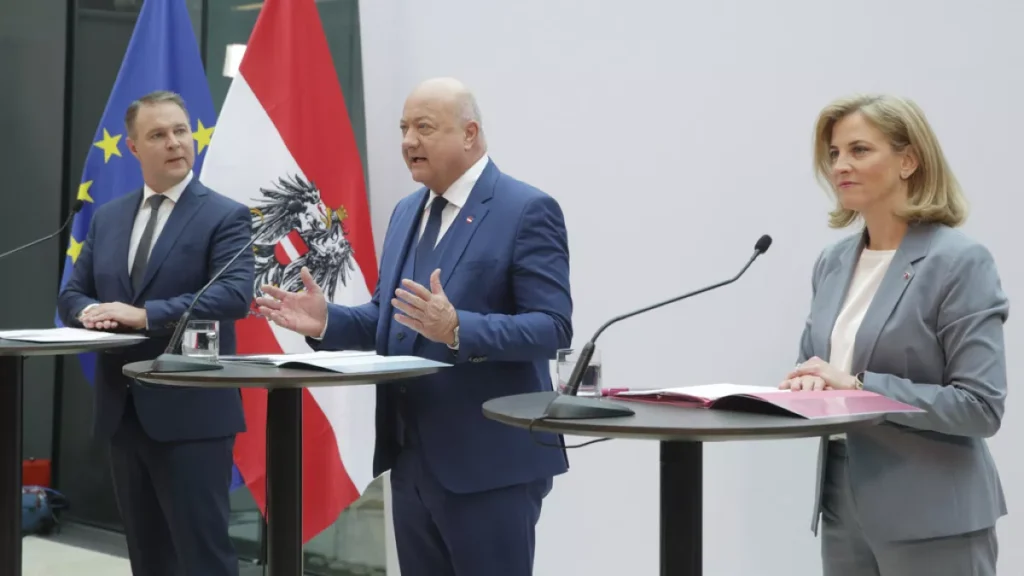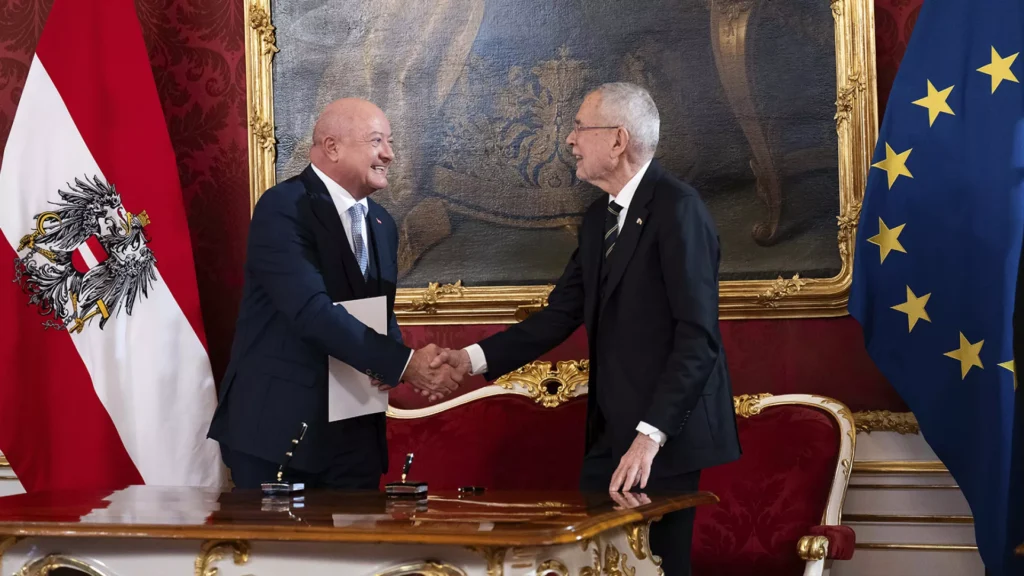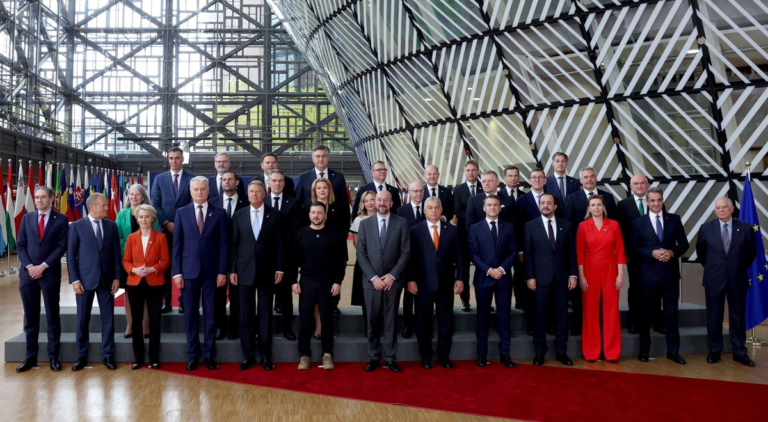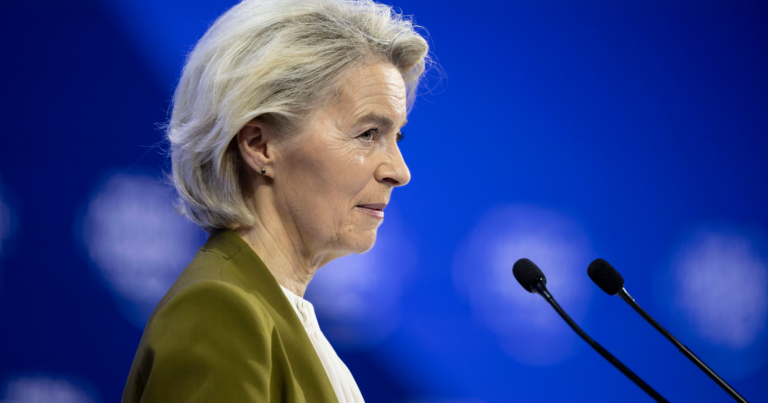A New Era for Austrian Politics

(Copyright Heinz-Peter Bader/Copyright 2025 The AP. All rights reserved)
Christian Stocker has officially taken office as Austria’s new chancellor, leading a historic three-party coalition. The centre-right People’s Party (ÖVP), the centre-left Social Democrats (SPÖ), and the liberal Neos finalized their agreement last week, ending a five-month-long negotiation process following last year’s election. The coalition took shape after the far-right Freedom Party (FPÖ), which secured the highest vote share, was excluded from talks. SPÖ leader Andreas Babler has been sworn in as vice-chancellor, marking a significant political shift for the Alpine nation.
During the swearing-in ceremony at Vienna’s Hofburg Palace, Austrian President Alexander Van der Bellen lightheartedly acknowledged the long negotiation period, stating, “Good things come to those who wait.” The coalition discussions—Austria’s longest in history—initially faltered in January before successfully reaching an agreement.
Stocker’s Unexpected Rise to Leadership

(Copyright AP Photo)
At 64, Stocker steps into the role without prior experience in national government. A former lawyer and member of parliament since 2019, he previously served as the ÖVP’s general secretary before replacing Karl Nehammer as party leader. Stocker himself admitted his surprise at the turn of events, recalling how he had arrived in Vienna in casual attire, only to find himself needing a suit and tie by the end of the day.
As Austria’s new leader, Stocker has reaffirmed his commitment to the European Union and expressed criticism of Russia—stances that contrast sharply with the far-right FPÖ, whose leader, Herbert Kickl, remains in opposition despite winning 28% of the vote.
The coalition government has outlined key priorities, including stricter asylum measures, revisions to tenancy laws, and planned benefit cuts. Stocker’s leadership marks the beginning of Austria’s first three-party coalition since the late 1940s, setting the stage for a transformative period in the country’s political landscape.


